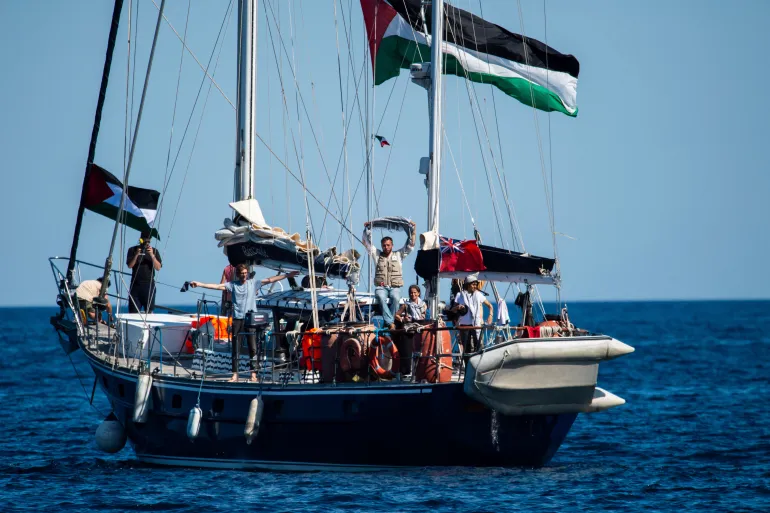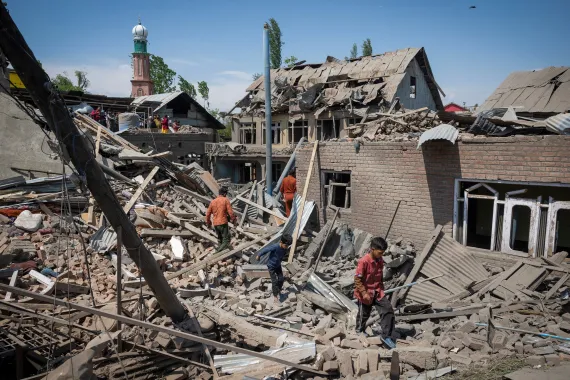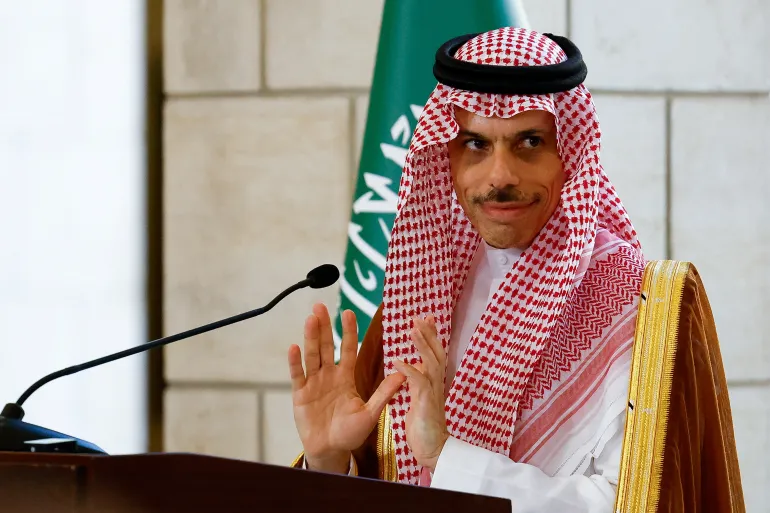A humanitarian vessel carrying aid and activists departed from the Italian city of Marina di Carrara on Sunday, setting course for Gaza in a direct challenge to Israel’s longstanding naval blockade of the Palestinian territory. The mission, called “Break the Siege,” includes over 30 activists from 12 different countries and aims to deliver medical supplies, food, and other humanitarian aid to the besieged enclave.
The ship’s departure was confirmed by the Freedom Flotilla Coalition, a group that has organized multiple attempts to breach the blockade since its inception in 2007. This latest effort is being framed as a non-violent act of solidarity with the Palestinian people. Organizers stated that the mission is not only humanitarian but also political, intended to spotlight the continued suffering in Gaza amid Israel’s military siege.
Among the notable passengers on board is Swedish climate activist Greta Thunberg. She joined the flotilla to draw attention to what she described as “a catastrophic humanitarian crisis” and to demand accountability from global leaders. “What is happening in Gaza is not only a political failure but a moral one,” Thunberg said before the ship’s departure. Her presence has amplified international interest in the mission.
The Freedom Flotilla Coalition emphasized that the ship is carrying only civilian aid and no weapons. Organizers are urging governments and international institutions to protect the voyage and hold Israel accountable should any interference occur. In a statement, they called on the international community to respect the right to provide humanitarian assistance to civilians in need.
Israel has not officially commented on the departure of the vessel. However, in past flotilla incidents, Israeli authorities have maintained that the blockade is necessary for security reasons and have intercepted similar attempts before the ships reached Gaza. Israeli officials have also previously offered to transfer aid through established land crossings under their control, rather than allowing sea delivery.
The Israeli naval blockade of Gaza, implemented in 2007 following the takeover of the territory by Hamas, has been condemned by numerous human rights organizations and international bodies. The United Nations has repeatedly urged Israel to lift or ease the restrictions, which have contributed to dire living conditions for Gaza’s 2.3 million residents.
In past years, flotillas attempting to break the siege have been intercepted, sometimes violently. The most well-known incident occurred in 2010, when Israeli commandos boarded the Mavi Marmara, a Turkish ship, killing nine activists. That event drew global condemnation and severely strained relations between Israel and Turkey.
Activists involved in this year’s mission said they are fully aware of the risks but remain committed to delivering their message. “We are determined to reach Gaza peacefully and deliver essential supplies to people who have been under siege for nearly two decades,” said Ann Wright, a former U.S. diplomat and vocal participant in previous flotilla campaigns.
The ship is expected to reach the eastern Mediterranean in the coming days. Organizers stated they will continue to update the public on its journey through social media and international networks.
While the vessel’s course remains uncertain due to potential Israeli intervention, the launch has already reignited debate about the blockade and the broader humanitarian crisis in Gaza. International observers are watching closely to see whether the mission will provoke a diplomatic confrontation or prompt renewed discussions over Israel’s policies in the occupied Palestinian territories.
The Freedom Flotilla Coalition has vowed to continue similar missions in the future, arguing that silence and inaction are no longer acceptable. As the ship sails toward a highly militarized zone, global attention will likely increase — with the hope, as organizers expressed, that their act of defiance might break through both physical and political barriers.
Source; Al Jazeera



